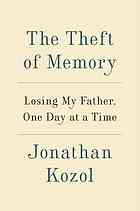

Most ebook files are in PDF format, so you can easily read them using various software such as Foxit Reader or directly on the Google Chrome browser.
Some ebook files are released by publishers in other formats such as .awz, .mobi, .epub, .fb2, etc. You may need to install specific software to read these formats on mobile/PC, such as Calibre.
Please read the tutorial at this link: https://ebookbell.com/faq
We offer FREE conversion to the popular formats you request; however, this may take some time. Therefore, right after payment, please email us, and we will try to provide the service as quickly as possible.
For some exceptional file formats or broken links (if any), please refrain from opening any disputes. Instead, email us first, and we will try to assist within a maximum of 6 hours.
EbookBell Team

0.0
0 reviews"House author Jonathan Kozol's deeply personal biography of his father, a brilliant neurologist who suffered from Alzheimer's.There are few writers of conscience who write as beautifully as Jonathan Kozol.Departing from the South Bronx and turning his sensitive eye to his own life and legacy, The Theft of Memory is Kozol's most personal book to date, as it explores the life of his father, Harry. Dr. Harry L. Kozol was a nationally-renowned neurologist whose work helped establish the emerging fields of forensic psychiatry and neuropsychiatry. He was a remarkable clinician with unusual capacity to diagnose and identify neurological and psychotic illnesses in highly complicated and sophisticated people, including well-known artists, writers, and intellectuals. Notably, in Eugene O'Neill's last years, the playwright moved to Boston so that he could live close to Kozol's father's office. In addition to his successful private practice in Boston, Kozol operated in a grim arena marked by extreme violence. But while his role as a forensic expert placed him in the public eye for high-profile criminal defendants such as Albert DeSalvo (the Boston Strangler) and Patty Hearst, he was--as his son articulates--"a healer of tormented people, not their judge, not their interrogator." With the same lyricism and clarity that have defined Kozol's acclaimed work on education for decades,The Theft of Memory intimately describes Harry's vibrant life, the challenges following his self-diagnosis of Alzheimer's, and the evolution of their relationship throughout. This unique biography will have a long shelf life as a moving portrait of an extraordinary man, a window into the heart of one of our nation's foremost education activists, and a frank examination of how we come to terms with caregiving"--
"House author Jonathan Kozol's deeply personal biography of his father, a brilliant neurologist who suffered from Alzheimer's.There are few writers of conscience who write as beautifully as Jonathan Kozol.Departing from the South Bronx and turning his sensitive eye to his own life and legacy, The Theft of Memory is Kozol's most personal book to date, as it explores the life of his father, Harry. Dr. Harry L. Kozol was a nationally-renowned neurologist whose work helped establish the emerging fields of forensic psychiatry and neuropsychiatry. He was a remarkable clinician with unusual capacity to diagnose and identify neurological and psychotic illnesses in highly complicated and sophisticated people, including well-known artists, writers, and intellectuals. Notably, in Eugene O'Neill's last years, the playwright moved to Boston so that he could live close to Kozol's father's office. In addition to his successful private practice in Boston, Kozol operated in a grim arena marked by extreme violence. But while his role as a forensic expert placed him in the public eye for high-profile criminal defendants such as Albert DeSalvo (the Boston Strangler) and Patty Hearst, he was--as his son articulates--"a healer of tormented people, not their judge, not their interrogator." With the same lyricism and clarity that have defined Kozol's acclaimed work on education for decades,The Theft of Memory intimately describes Harry's vibrant life, the challenges following his self-diagnosis of Alzheimer's, and the evolution of their relationship throughout. This unique biography will have a long shelf life as a moving portrait of an extraordinary man, a window into the heart of one of our nation's foremost education activists, and a frank examination of how we come to terms with caregiving"